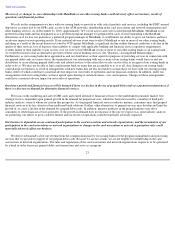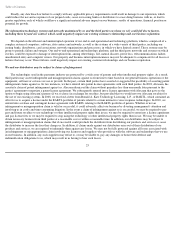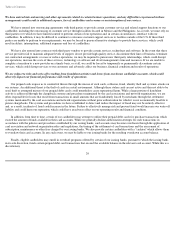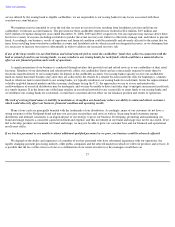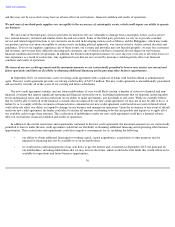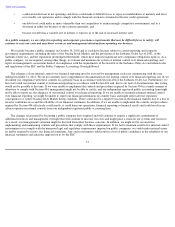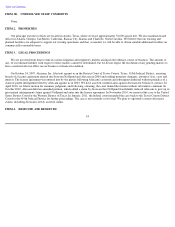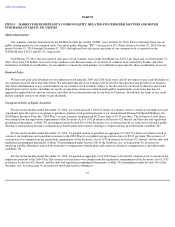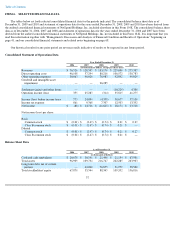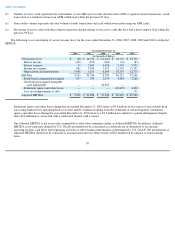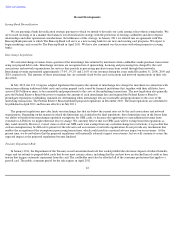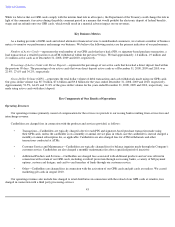NetSpend 2010 Annual Report Download - page 37
Download and view the complete annual report
Please find page 37 of the 2010 NetSpend annual report below. You can navigate through the pages in the report by either clicking on the pages listed below, or by using the keyword search tool below to find specific information within the annual report.
Table of Contents
The affirmative vote of the holders of at least 75% (or 80% in the case of the provision related to stockholder action by written consent) of
our shares of capital stock entitled to vote is necessary to amend or repeal the above provisions that are contained in our certificate of
incorporation. In addition, our board of directors has the ability to designate the terms of and issue new series of preferred stock without
stockholder approval. Also, absent approval of our board of directors, our bylaws may only be amended or repealed by the affirmative vote of
the holders of at least 75% of our shares of capital stock entitled to vote.
In addition, we are subject to the provisions of Section 203 of the Delaware General Corporation Law, which limits business combination
transactions with stockholders of 15% or more of our outstanding voting stock that our board of directors has not approved. These provisions
and other similar provisions make it more difficult for stockholders or potential acquirers to acquire us without negotiation. These provisions
may apply even if some stockholders may consider the transaction beneficial to them.
These provisions could limit the price that investors are willing to pay in the future for shares of our common stock. These provisions
might also discourage a potential acquisition proposal or tender offer, even if the acquisition proposal or tender offer is at a premium over the
then current market price for our common stock.
If securities analysts do not continue to publish research or reports about our business or if they publish negative evaluations of our stock,
the price of our stock could decline.
We believe that the trading price for our common stock will be affected by research or reports that industry or financial analysts publish
about us or our business. If one or more of the analysts who may elect to cover us downgrade their evaluations of our stock, the price of our
stock could decline. If one or more of these analysts cease coverage of our company, we could lose visibility in the market for our stock, which
in turn could cause our stock price to decline.
We have no plans to pay dividends on our common stock.
We do not intend to declare or pay dividends on our common stock in the foreseeable future. Instead, we generally intend to invest any
future earnings in our business.
33


